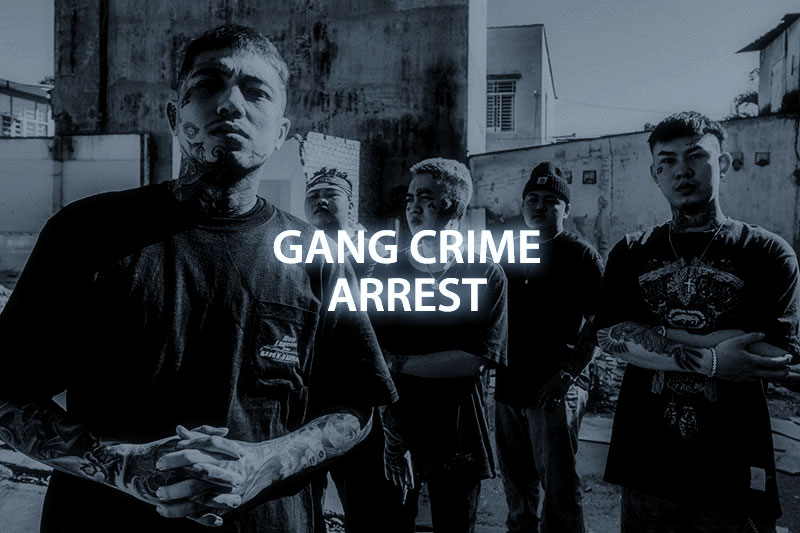Gang-related charges in California can come with severe penalties due to gang enhancements. However, robust defense strategies have led to favorable outcomes for defendants in some cases. Below, we delve into real-life examples from California where effective defense strategies helped to overcome gang crime charges, analyzing the key factors that contributed to these successes.
Case Study 1: People v. Superior Court (Acosta) (2004)
Summary:
John Acosta, the defendant, was charged under the Street Terrorism Enforcement and Prevention (STEP) Act, which included gang enhancements. The case hinged on whether Acosta’s conduct benefited a gang.
Defense Strategy:
Acosta’s defense team successfully argued that his actions, while criminal, did not specifically benefit the gang. The defense scrutinized the prosecution’s claims and showcased the lack of direct evidence linking Acosta’s actions to the gang’s interests.
Outcome:
The California Supreme Court ruled in Acosta’s favor, agreeing that the prosecution must demonstrate that the crime was committed to specifically aid the gang. This case set a precedent by clarifying the requirements for proving gang enhancements.
Key Factor: The defense’s ability to distinguish between gang membership and specific intent to benefit the gang was pivotal in Acosta’s case.
Case Study 2: People v. Ewing (2016)
Summary:
Defendant Rico Ewing was facing serious gang-related charges for attempted murder that included gang enhancements.
Defense Strategy:
Ewing’s defense effectively cross-examined law enforcement witnesses and used a gang expert to challenge the prosecution’s evidence that Ewing was an active gang member. Critical to the strategy was establishing inconsistencies in witness statements and questioning the reliability of the prosecution’s gang expert.
Outcome:
The jury found Ewing not guilty of all charges related to gang involvement, demonstrating the power of expert testimonies and thorough cross-examinations in swaying a jury’s decision.
Key Factor: Utilizing an expert witness to counteract the prosecution’s narrative about gang affiliation was a key factor in dismantling the prosecution’s case.
Case Study 3: In re Frank S. (2006)
Summary:
Frank S., a juvenile defendant, was adjudicated for robbery with gang enhancements. The main contention was his involvement in the crime as part of gang activities.
Defense Strategy:
Drawing upon psychological evaluations and character references, the defense showcased Frank S.’s limited involvement in gang activities and emphasized his strong potential for rehabilitation.
Outcome:
The judge decided against imposing the maximum sentencing, and Frank S. received a sentence that focused on rehabilitation rather than punishment.
Key Factor: Highlighting the youth and potential for rehabilitation of the defendant were significant factors in achieving a more lenient sentence.
Case Study 4: People v. Valencia (2007)
Summary:
Oscar Valencia was tried for murder with gang enhancements, which could have resulted in life imprisonment without parole.
Defense Strategy:
Valencia’s defense centered on the lack of direct evidence linking him to the crime scene. They contested the credibility of the prosecution’s witnesses and emphasized Valencia’s alibi and lack of a motive.
Outcome:
The jury acquitted Valencia of the murder charges, attributing a considerable part of their verdict to the unreliable testimony of the prosecution’s witnesses and the strong alibi presented by the defense.
Key Factor: A solid alibi and the defense’s success in discrediting prosecution witnesses were instrumental to the not-guilty verdict.
Gang Crime Defense Attorney Caryn Warren Can Help!
These cases illuminate the importance of a nuanced and well-prepared defense strategy in cases involving gang-related charges. Key factors such as the ability to challenge gang enhancement requirements, the use of expert witnesses, focusing on rehabilitation potential, and establishing a strong alibi have all contributed to favorable outcomes. While each case is unique, these examples underscore the value of experienced legal counsel and the profound difference a personalized defense strategy can make in the face of gang crime allegations in California.
Personal Injury & Criminal Defense Services Available Throughout
Greater Sacramento, Yolo, Placer, and Solano Counties
Antelope, Arden-Arcade, Auburn, Benicia, Carmichael, Citrus Heights, Davis, Dixon, Elk Grove, Fairfield, Fair Oaks, Folsom, Galt, Gold River, Granite Bay, Iselton, Lincoln, Loomis, North Highlands, Orangevale, Rancho Cordova, Rio Linda, Rio Vista, Roseville, Rocklin, Sacramento, Suisun City, Vacaville, Vallejo, West Sacramento, Winters, Woodland

